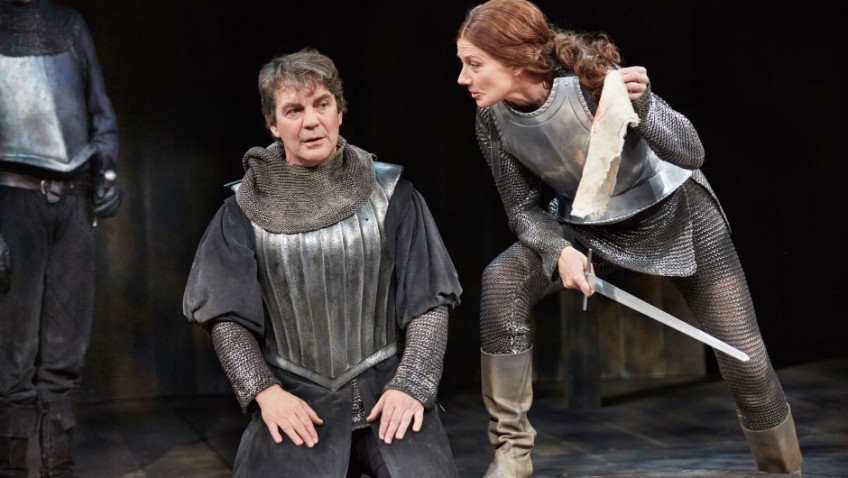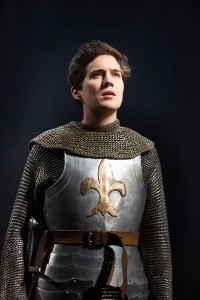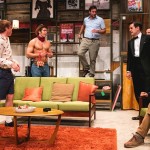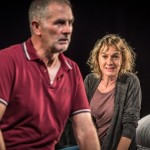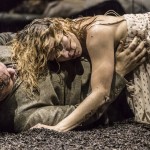 Robert Tanitch reviews The Wars of the Roses at Rose Theatre, Kingston, Surrey
Robert Tanitch reviews The Wars of the Roses at Rose Theatre, Kingston, Surrey
The Wars of the Roses, adapted by Peter Hall and John Barton from the three parts of Henry VI and Richard III, was premiered by the RSC in 1963 and has not been seen since then.
Trevor Nunn’s fluid, expert and efficient revival of this legendary production is dedicated to Hall and Barton, whom he describes as his mentors, teachers and inspiration.
The Henry VI plays are among Shakespeare’s earliest works, highly popular in their day (circa 1592) and since then rarely revived. They are so rarely produced, that whenever they are staged, it becomes something of an occasion.
You might be surprised by just how much cutting, re-arranging, rewriting, and adapting Hall and Barton have done. There is a lot of pastiche Shakespeare.
The plays trace the power struggle between the Houses of York and Lancaster for the throne of England from 1455 to 1487. The characters, for the most part, are ambitious villains, traitors and murderers, inhuman, execrable, ruthless and remorseless.
The social disintegration that the civil war brings is vividly symbolised in a battle scene in which a father discovers he has killed his son and a son discovers he has killed his father.
Nunn’s tribute has a characteristic RSC 1960s stamp to it.
Alex Waldmann’s King Henry, like Peter Pan, never grows up and remains a child forever. Gentle, mild, virtuous, he is too Christian, too saintly, too weak and too ineffectual, to be a medieval king. There is no suggestion of the king’s mental infirmity.
Joely Richardson has one the great female roles in Shakespeare: Marguerite, she-wolf of France, who is transformed: from a beautiful princess into a brutal warrior queen and then transformed again into a mad old hag.
There is a particularly strong performance by James Simmons as Talbot and Talbot’s early departure is thus even more regrettable.
Richard III is written in a different key and is usually performed on its own as a bravura showcase for a great actor. Acted now as the climax to the trilogy it needs to conform more to the Henry plays. Robert Sheerhan’s youthful caricature doesn’t feel right for the present context.
I saw all three plays on one day, starting at eleven in the morning and ending at 10.30 at night, an exciting marathon for actors and audience alike. You can do this, too, or you can see them on three separate days. Either way, you need to see all three plays. There is not much sense in seeing just one play on its own.
To learn more about Robert Tanitch and his reviews, click here to go to his website

